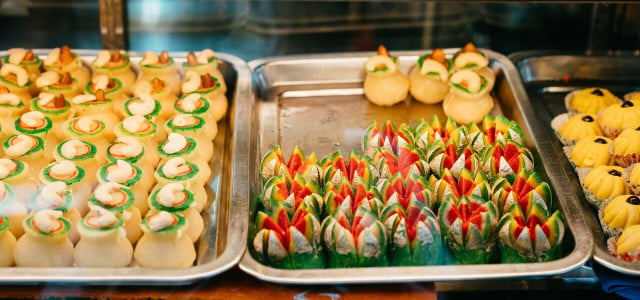
Not everything you can safely eat at home is also risk-free on vacation. We list a few food groups that you should be careful with when abroad.
When we go on holiday, we don’t just want to see the culture of a country, we want to taste it too. But be careful: some foods can quickly become a health risk abroad.
Here are foods you should avoid on vacation.
1. Raw seafood and fish
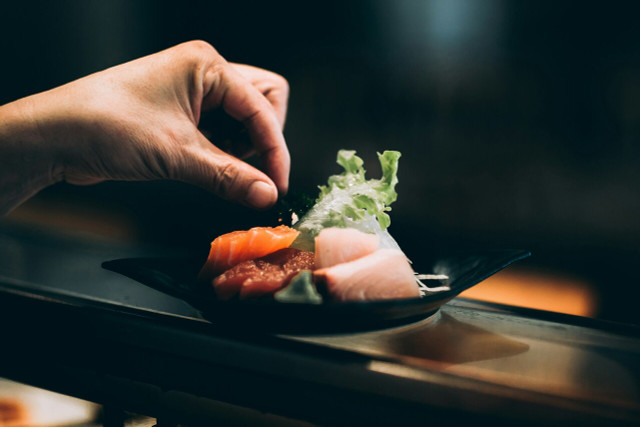
(Photo: CC0 / Unsplash / Kyle Head)
Although fresh oysters can be tempting, they are not always a good choice when on vacation. The consumer advice center warns that raw mussels are often contaminated with hepatitis A viruses or other pathogens, especially in the Mediterranean or Atlantic regions. Therefore, only eat seafood that is well cooked.
The Tropical Institute points out that there are not only edible but also poisonous fish species. Therefore, you should only eat fish you have caught yourself if you are 100 percent sure what it is.
2. Raw meat
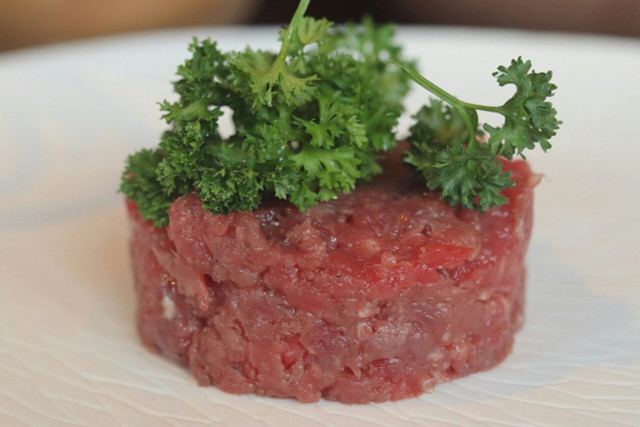
(Photo: CC0 / Unsplash / Call Me Fred)
Raw meat, such as carpaccio or tartare, also carries a significant risk of food poisoning. Pathogens such as salmonella, trichinae or dangerous parasites can hide in raw meat. You should also avoid half-cooked dishes – well-cooked meat is the safer choice.
3. Raw vegetable salads
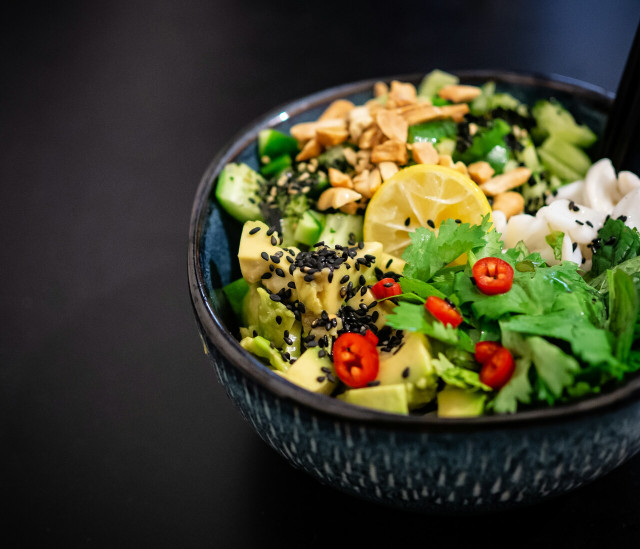
(Photo: CC0 / Unsplash / Yoav Aziz)
Salads often do not contain any animal products and are healthy – but that does not mean they are a safe choice on vacation. In many countries, salads are washed with tap water, which may be contaminated with bacteria or parasites. According to the consumer advice center, this affects many countries in Africa, Asia and Latin America.
Therefore, avoid raw food dishes in restaurants or at street stalls and choose boiled, fried or cooked dishes instead. If you want to prepare a salad or other raw food yourself on holiday, wash it thoroughly with purified water.
4. Unwashed fruit
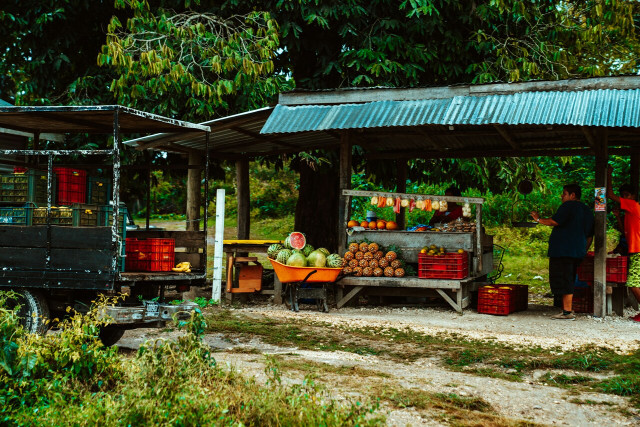
(Photo: CC0 / Unsplash / Meritt Thomas)
You should always wash fruit thoroughly when abroad and ideally peel it too. It is best to use bottled drinking water if the tap water is not safe – see point eight. The consumer advice center recommends avoiding pre-cut fruit on the side of the road – germs that can cause stomach problems quickly build up here.
5. Buffets with cold dishes
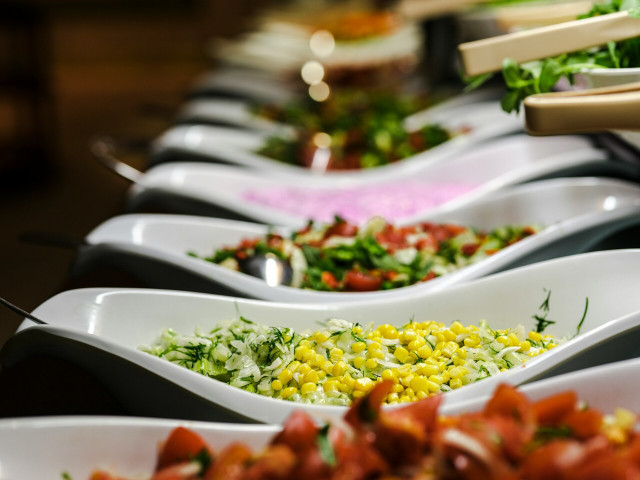
(Photo: CC0 / Unsplash / engin akyurt)
According to the consumer advice center, buffets that are left unrefrigerated for several hours in warmer climates are an ideal breeding ground for bacteria. Cold foods such as salads or desserts, which spoil easily, are particularly risky.
To be on the safe side, opt for freshly prepared, hot dishes.
6. Raw eggs and products made from them (including ice cream!)
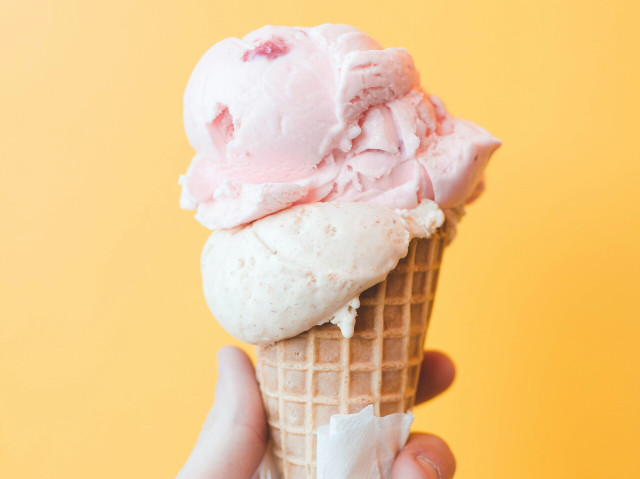
(Photo: CC0 / Unsplash / ian dooley)
You should avoid foods that contain raw eggs, such as mayonnaise or some desserts. Otherwise, the salmonella bacteria in the eggs could make you sick. Pasteurized products are the safer alternative.
While you can usually eat commercially packaged ice cream without worrying even in countries you are travelling to, you should take a closer look at ice cream parlors: Does the ice cream contain raw eggs? If so, only buy there if you are sure that the hygiene during production is impeccable.
7. Freshly squeezed fruit juices
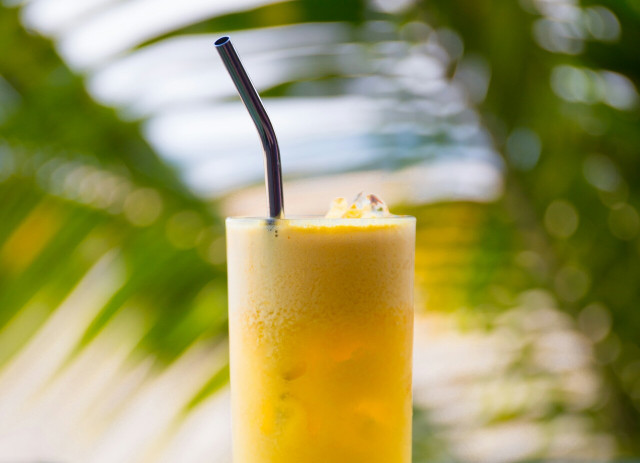
(Photo: CC0 / Unsplash / Olivier Guillard)
According to the consumer advice center, there is no risk with industrially packaged juices – or other beverages.
However, when it comes to freshly squeezed juices, you should first check whether the fruit presses, containers and the seller’s hands are clean. Otherwise, pathogens could get into the juice.
8. Tap water and ice cubes
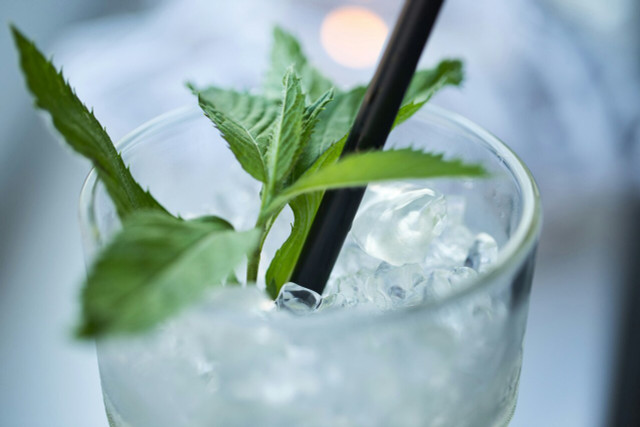
(Photo: CC0 / Unsplash / Marc Schulte)
Even if tap water is declared “drinkable” in many countries, you should be careful. This applies to many countries in Asia, Africa and Latin America. Avoid drinking water directly from the tap or brushing your teeth with it. The consumer advice center recommends using bottled drinking water instead or boiling the water for at least five minutes to kill pathogens. You should then filter it.
The Tropical Institute lists other options: You can clean tap water with special disinfectant tablets. Tea and coffee freshly made with boiling water are usually safe. Beer and wine are also not a problem. However, the institute also warns against drinking drinks that are too cold in hot weather, as the stomach can react sensitively to them. You can find more information here: What is better in the heat: cold or warm drinks?
In warm countries, ice cubes are often made from tap water, which does not meet the same hygienic standards as in Germany. If these melt in the drink, there is also a risk. You can find out more about this here:
9. Raw milk and unpasteurized products thereof
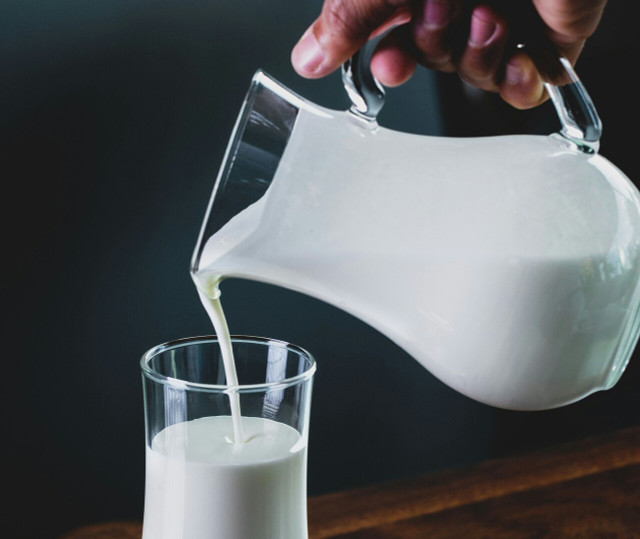
(Photo: CC0 / Unsplash / Eiliv Aceron)
Unpasteurized milk and products made from it – such as raw milk cheese – can contain dangerous pathogens such as listeria. Avoid these products and choose pasteurized milk products instead.
By the way: You should follow all of these points even in a country with safe hygiene if you are pregnant: What are pregnant women not allowed to eat?
Read more on Techzle\.com:
- Eating in hot weather: 8 mistakes you should avoid
- Bag salad: What you should consider when buying salad from a bag
- Staycation: 6 tips for a sustainable holiday at home
** marked with ** or orange underlined Links to sources are sometimes affiliate links: If you buy here, you are actively supporting Techzle\.com, because we then receive a small part of the sales proceeds. More information.